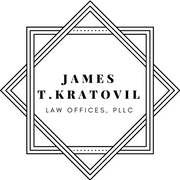
Many questions arise when filing for bankruptcy for the first time. Yet, the changes brought on by the COVID-19 pandemic complicate the process. Not only have filers been impacted financially, but the court systems are operating with new rules in place to protect staff and citizens. Find out what to expect by reviewing this guide.
4 FAQ About Filing for Bankruptcy During COVID-19
Can I still file?
The courts are still actively accepting bankruptcy filings. The majority of courts are open, but some have placed limitations on who can access the property in person and may require virtual hearings. Check the status of the courthouse to identify any special steps that need to be taken. If you're working with a lawyer, they'll make sure that everything is filed correctly.
Are my deadlines still in place?

Delays have become common, but they're not possible to predict. For that reason, operate as if the original dates are accurate, and prepare and submit all the documents on time. This mentality prevents the risk of missing important deadlines that could delay or dismiss your case.
Does the CARES Act relief payments impact the process?
The federal government has now provided three stimulus checks through the CARES Act that offer financial assistance and boost the economy. Yet, there are income restrictions in place to qualify for Chapter 7 bankruptcy. Fortunately, the Act also modified the U.S. Bankruptcy Code so that the stimulus checks don't count towards a person's income calculations.
What if I can't keep up with Chapter 13 payments?
Chapter 13 bankruptcy is designed to make debt more digestible with a repayment plan of three to five years. As such, the court determines monthly payment amounts based on their financial situation. If COVID-19 has caused hardship, individuals can request to stretch their plan to a seven-year repayment, which reduces the monthly amounts.
If you're considering filing for bankruptcy in West Virginia, reach out to Kratovil Law Office, PLLC. The Charles Town-based law office provides personalized guidance to clients across Jefferson County and the surrounding areas. Learn more about their debt relief options online, and request a case evaluation with a lawyer at (304) 728-7718.
About the Business
Have a question? Ask the experts!
Send your question

